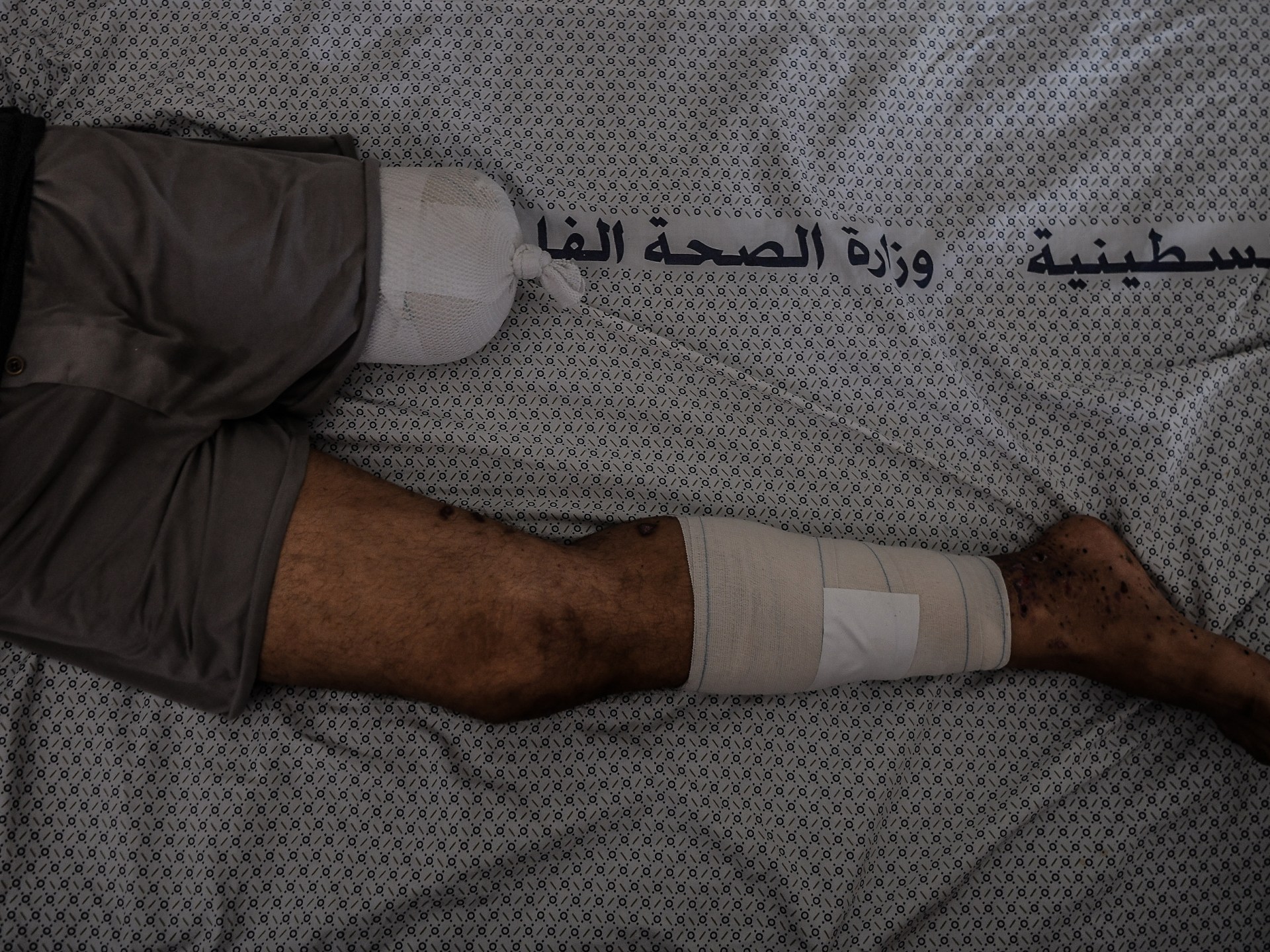The most recent gruesome headline to emerge from Gaza is “Ten children a day losing a limb,” warns the UN-backed body.
Since the war broke out in October 2023, according to the article, “134, 105 people, including over 40, 500 children, have received new war-related injuries.”
Real children who have lost a portion of their bodies, their childhood, and their dreams are hidden behind these shocking statistics.
Osama, one of my 12-year-old relatives, is one of them. He twice escaped death, but each time he lost a significant portion of his family before he could only remain.
He and his mother, grandmother, and sisters were at his grandparents’ house for the first time. Everyone except Osama was killed when an Israeli airstrike hit the home.
When Israel bombed it the second time, he was at a school instead of a home. All seven of his uncles and father were killed. Despite losing his leg, Osama still lived.
To check on him, my father and I went to Al-Aqsa Hospital. A young patient waved us at the hospital’s entrance as he presented the child with his plastic bag of water and handed it to us. His other hand had to be amputated. The hospital’s admissions room was horrifying inside. On beds and on the floor, there were dozens of amputees.
Osama was lying in his bed, we discovered. He sobbed the majority of the time during the visit. He struggled with every movement.
His face hurts beyond recognition, as I witnessed. A child who lost his mother, father, and his siblings was now completely alone, dealing with the trauma and pain of an amputation.
He had to rely heavily on his family’s charity. Someone was constantly looking for a wheelchair for him, and he was cared for and supported.
However, taking care of a wounded child who can’t even use the restroom alone in a war can be overwhelming, even for those who care about him. They are barely surviving, not because they don’t want to help.
Osama was aware of that. He yelled, “I want to play with mama and baba and go to heaven.” His words have broken my heart.
Living in an unfair society means losing one’s limb. For every move, step, or simple activity, assistance is required. It also means being constantly feeling different, being criticized or unfazed, and not being able to play alongside other children while they run and play. Many people, like Osama, must deal with this alone without the support of their parents, siblings, and sisters.
Osama must feel something, I can’t begin to comprehend.
But I am aware of how I felt just as I was able to avoid an amputation.
Our home was attacked in June of last year, and my family and I suffered injuries in addition. My hand and other body parts were covered in shrapnel, among them. I was taken to the hospital without incident.
When I first learned that I needed urgent surgery, I was concerned that my hand might not grow.
My right hand was it. the pen I use to record my dreams. the one with which I put my books in my notebooks. the one I use to communicate with my mother, hold my phone, and text friends and distant relatives.
Without it, how could I exist? How could I continue to write, interpret, and dream in the midst of all this destruction?
I also experienced Osama’s feelings at the time: Death would be simpler than losing a portion of my body.
In the hospital, I sobbed a lot. Fear of a life in which I might no longer feel whole, in addition to the pain I experience.
My hand was saved from an amputation by the operation, but the shrapnel remained inside. They were unable to remove it because it was too close to the nerve and feared harm. They vowed that it would continue there indefinitely.
A piece of body shrapnel that resembles a mind-altering piece of pain. I still have a portion of the war inside. My body contains a piece of destruction.
I spent two weeks in the surgery unit, which is specialized in limb fracture cases involving amputation and limb fracture. Not a single morning went by without I waking up to the groans of a woman who was writhing in pain from a wound that refused to heal or the scream of a child crying from the agony of an amputation.
A woman in her 50s had lost both of her arms in front of my bed. She was unable to even put a piece of bread in her mouth. Her daughter fed her with a spoon like a child and sat next to her. Her eyes cried out because of the intolerable sense of helplessness, not just from the physical pain.
She sat still as I watched her. I never forget what she portrayed. The soul is destroyed when a person is stripped of their most fundamental abilities, such as eating, washing themselves, and walking.
War doesn’t just end lives. It is a stealer.
It plagiarizes people’s lives, their homes, their loved ones, and even their limbs.
When you survive, the pain doesn’t end. It begins when you are forced to live in a body that will never be the same, with what is missing, what is broken, and what is broken.
And if losing a body part sometimes seems easier than losing it all, resistance in its purest form can be found in the life we lead afterwards.
Source: Aljazeera

Leave a Reply